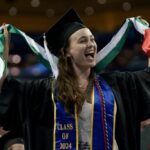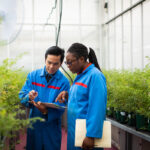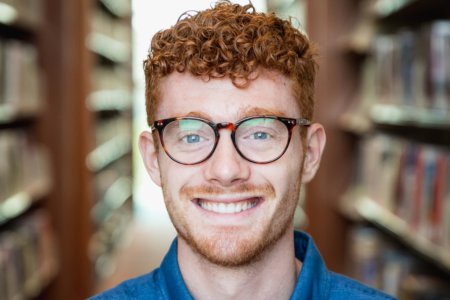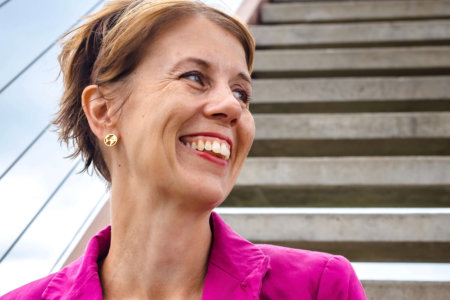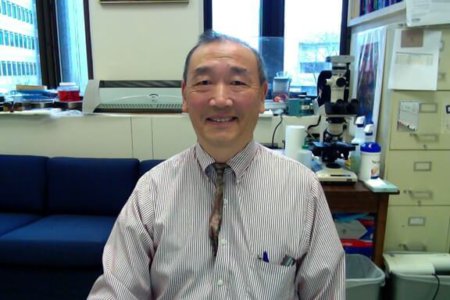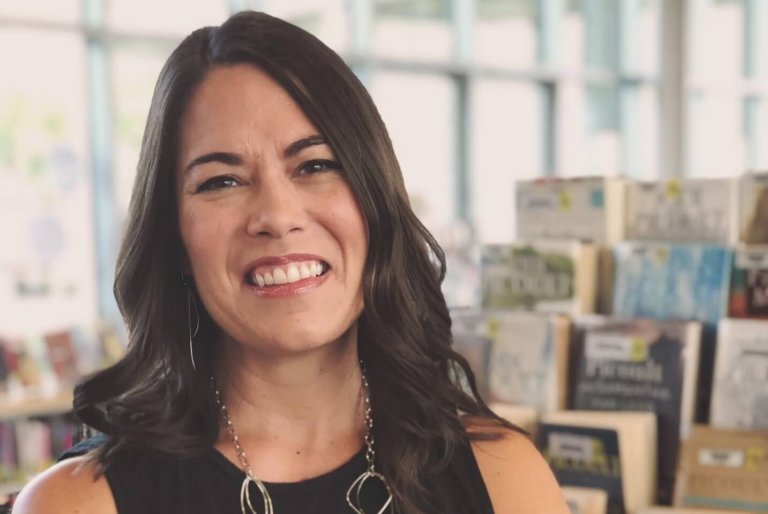
“Tell me, what is it you plan to do with your one wild and precious life?” is a quote by Pulitzer-winning American author Mary Oliver — Jennifer McKenzie lives by it.
It’s clear from her CV. McKenzie is not only this year’s recipient of the Fulbright Teachers for Global Classrooms Programme. She’s also a five-time Teacher of the Year winner, librarian media specialist at the Siuslaw School District in Oregon, Portland, and a former medical service corps officer for the US Army.
The next stop in this illustrious streak is to take her knowledge on education and digital literacy abroad. Her plan is to explore reading advocacy, digital literacy and research and technology integration.
We caught up with McKenzie to learn more about why she pivoted from medicine to education, her Fulbright programme and what the future holds for her:
Tell us a bit more about roles as an English teacher and a teacher librarian.
I’m a K12 teacher librarian in a beautiful rural coastal town in Portland, Oregon. I started this position last year in the pandemic so, it’s been an interesting journey.
Teacher librarians in the US are commonly known as library media specialists. Language is power and as a certified teacher (for about 19 years), I had to get my library media endorsement first.
What I teach specifically is reading advocacy, digital literacy, and district-wide technology integration — like how to appropriately embed and utilise tech tools to increase teaching and learning.
Digital literacy is slowly progressing so I think it’s a good national standard to have. The teacher librarian curriculum standards are derived from our common core state standards (American Association of School Library Standards) as well as iSQI standards.
So, digital citizenship was what I led with for my Fulbright programme application.
Is digital literacy and citizenship happening fast enough?
Last year, in my little district, we got everyone on board with the Common Sense Media Curriculum so we aligned lessons using their platform. I always think of digital citizenship almost like Bloom’s taxonomy where the very basic level is just in understanding digital literacy and privacy.
That’s what people initially think digital citizenship is. It’s very basic though, we need to get to the creation that’s on top of the pyramid. Things such as how to reach out across the country and across the globe to collaborate to make the world a better place.
All over the world, virtual field trips have blown up. So, I started asking community members, school district board members, teachers and students what they really wanted. Their response was to connect with others.
A way we helped the feeling of disconnection was through our own virtual field trips. It was basically me with my little tripod and mobile phone using Google Meet for about 40 to 50 different trips.
I think one of the most beautiful things to come out of that was community reciprocity and resulted in community members around town using the language of digital citizenship. Things like utilising the technology to connect with our students helped bring the community closer.
If the pandemic didn’t happen, it wouldn’t have progressed as much for sure. I saw this teaching of digital literacy and citizenship as a kind of silver lining. I have to give a huge shoutout to Shannon McClintock Miller who’s a Future Library librarian leader.
Her work at this initiative pulled together librarians from across the country for webinars which helped us learn how to move through the pandemic together as a national team.
Walk us through your role in the US Army. Do you think there are any skills from there you implement in education?
I did patient administration and served as a medical service corps officer in medical logistics, training and operations. I worked at the Walter Reed Army Medical Centre in Washington DC with our wounded soldiers.
The most memorable thing I did during my army career that I also implemented in education was mixed media artwork. When I was working at the hospital, we created a programme called Healing Hearts through Healing Arts and it was about helping soldiers with PTSD and wounds.
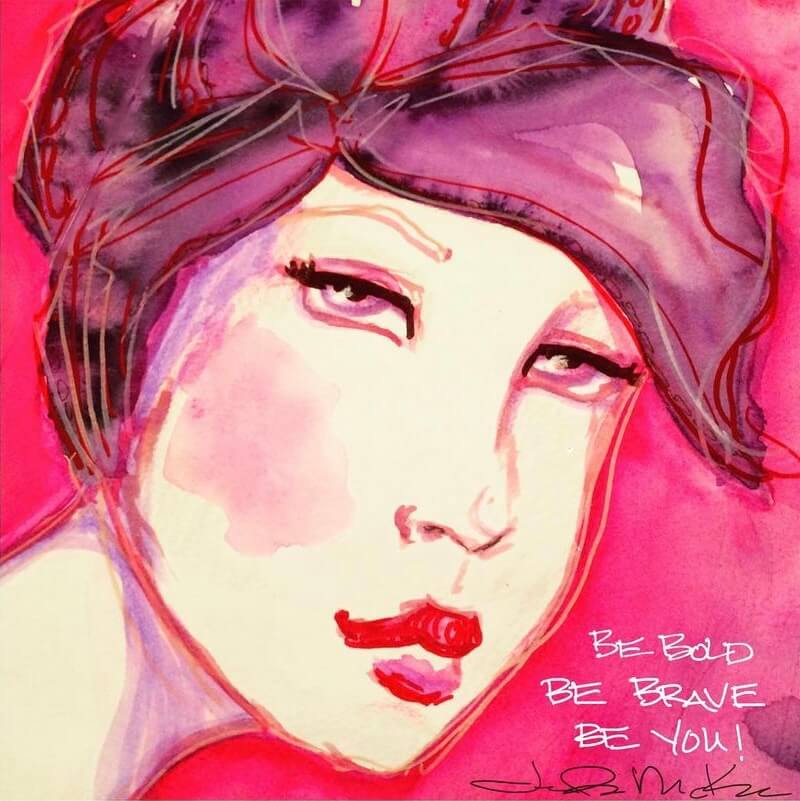
“The most memorable thing I did during my army career that I also implemented in education was mixed media artwork,” she says. Source: Jennifer McKenzie
This was done by creating a space for meditation, journaling, art, poetry slams (which were very powerful) and art therapy. I also do this in my libraries because even though you’re not in a pandemic, libraries are third spaces.
This means they’re not quite home and not quite school, instead, they’re a safe space for students. Another thing we did was bring in maker space kits (STEM projects) which teaches kids to practice the engineering design process. When I teach things like team building, you can see this comes from my time in the US Army.
Walk us through your Fulbright programme application. What was it like?
Through Miller’s summits, I was able to connect with people like Michelle Carton who’s a teacher librarian in Alaska. We instantly bonded because of the virtual field trips and she told me to look at expanding and going global.
Carton was a Fulbright Teacher for Global Classrooms programme participant several years ago which is how I learnt of the opportunity. The process wasn’t too arduous but they do look for the level of social impact you can have.
The application will ask you about the demographics of your school and what you hope to accomplish. There’s also a section where you list accolades so my awards from both teaching and being in the military might have played into it.
It’s an honour to win it and I’ll begin teaching under this at the end of September. More than anything, I’m excited to tap into the Fulbright programme community so I can then bring resources to my tiny rural town.
Where do you plan to visit abroad under this Fulbright programme?
I believe I picked southeast Asia as I’ve already travelled to South Korea, Thailand and the Philippines. My husband and I are both teachers so we had a friend who was an international teacher in Seoul and we would visit every spring break and travel around.
I also selected South America and Central America because of my travels to Guatemala back in my army days. I was there for a month even though the mission was only two weeks long. We were on a humanitarian medical mission in small towns at the top of the mountains where we set up our hospitals.
I won’t be able to find out where I’m headed until December though.
Do you have any idea of what you’ll be teaching under this programme?
I’m not sure yet but from my perspective, I think this would be like a Fulbright mini design for classroom teachers who can’t take a sabbatical for a year. Ideally, you’re supposed to do a three-week country visit in the summer but because of COVID-19, it might get pushed to next fall.
A lot of it will be about building community, site visits, visiting different schools and so. All this, so we can get a feel of what international education is like. Hopefully, it would involve working together with others on solving international education problems.
Any advice for teachers who want to apply for the same Fulbright programme?
Apply! I’m a first-generation college student so it was a really big deal for me. However, having said that, I’ve done a lot of firsts in my family and sometimes I feel like I underestimate myself.
If you’re passionate about it, you need to put your best foot forward and go for it. If you don’t succeed then you can try again — the point is to never give up. Also, a strong social media presence will help.
My social media presence is not the best and I still have work to do but I’m starting to connect with all of the Fulbright family.
Do you still see yourself in education in 10 years?
I believe I’ll be an educator forever and I hope to be in this community in 10 years. I graduated from a town called Rugby in North Dakota which is literally the geographical centre of the North American continent.
@jennifermarymckenzieA sampling of my August reads! ##FutureReadyLibrarians ##summerreading ##OBOB ##teacherlibrarian♬ Pump – Valentino Khan
It’s the furthest away from any ocean you could ever be and my family also never had money to travel. This led me to want to live by the ocean as I got older.
Now, it’s literally across the street from me and the area is beautiful. I’m also a whale enthusiast and this year, I had my students study the grey whale migration. We did one of our virtual field trips with Carrie Newell (a famous marine biologist) on the Oregon Coast.
I hope to still be in education but I feel like there will be some other things percolating out there like tapping into more global connections and collaborations. That being said, I also hope to further nature inspired mixed media artwork.




